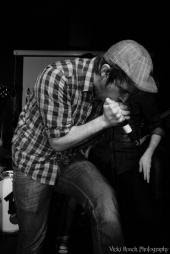
We’ve compiled some recording hints for those of you recording your own stuff at home. It doesn’t matter whether you record on to an old 4-Track tape machine, a computer based system or wax cylinder.. the same rules usually apply!
Getting the simple things right is the key to a smooth session and a good recording.
1. Rehearse, rehearse, rehearse. If you know your material and your arrangements you’ll save time and money and make time in the studio more productive and enjoyable for everyone.
2. Re-string your guitars, re-skin your drums. If you can set them up yourelf then do it. If not then pay a guitar shop to do it. Top studios regulalry hire in gear if the artists equipment isn’t up to standard. A crap guitar is still going to sound crap even if its recorded through the best gear!
3. Make sure you have a guitar tuner with you while you record. It’s absolutely critical to tune before every take. Nothing worse than doing a great take then realising your out of tune! When you layer up parts in a multitrack recording any tuning issues will become apparent and will generally make your recording sound less good!Putting down your initial tracks to a click track or a metronome is always a good idea. Its much easier to add tracks to a multitrack when what your’re playing to is in time! Subtle tempo shifts can be good but big timing issues are one of the major differences between a piece of music that sounds ‘right’ and one that sounds a bit unprofessional.
4. If you’re recording with a mic try and get your mic as close to the sound source as possible. Unless you’re trying to get an ambient/roomy sound, a close mic sound will generally be a bit more useful when you’re trying to mix your song. If you’re recording on to a computer you’ll probably have some plug-in effects you can use on your sounds. In this case you’re definitely better off with a close mic’d sound as you’ll be able to do more with it.
5. A good studio trick when recording guitar is to mic your cab up in another room. Put the head in the control room (or wherever your recording gear is) with you so you can adjust the settings easily. This is handy for overdubbing guitar parts as you can then hear exactly whats going on in the mix
6. Another classic problem with home and small studio recording is the old “It sounded different when I played it at home.” Its tricky to get consistant sounding recordings and mixes, that’s why people pay big bucks for studio design. To get round the problem try setting up 2 sets of speakers so that you can listen on both as you’re recording and mixing. Headphones will also give you another perspective. If you listen to music in your car then take a rough mix to the car and listen to it there… people do this a lot even in top studios! Once you’ve done a few recordings or mixes in the same place you’ll get to know how your listening environmnent sounds. For example, your studio might might create ‘standing waves’ in the low frequencies which make certain bass notes or the bottom end of your track seem really loud, so in your mix you’ve turned the bass right down. Then, when you play your recording somewhere else, the bass seems really quiet or is missing something. Once you know this you can try and work round it or try and set up some accoustic damping.. Not always possible if you’re studio is your bedroom!
7. Distortion can be friend and foe! Nice distortion is possibly a question of taste but generally a bit of analogue distortion or harmonic distortion is quite nice. It sounds good on guitars, vocals, almost anything in fact. When it doesn’t sound so good is when your recording levels are wrong and you’ve ‘clipped’ or distorted the input stage of your recording device. Setting your input gain level is really important. When you’re setting up your levels try playing and recording the loudest section that you’re about to record. Then have a listen back, check your meters and listen to how it sounds. If you’re input level is too high you’ll hear crackles, pops and general badness. If you record on to a digital system you’ll see the meters go red in the loud bits. Turn the input level on your recording device and try again until your recording sounds good. Bear in mind that you don’t want to turn your input levels down too much as then you’ll record your signal at too low a level. This will make it difficult to use. Essentially you will have also recorded ‘noise’ the background noise of the recorder which will be audible when you turn up the track in the mix or try and effects, compression or E.Q.





